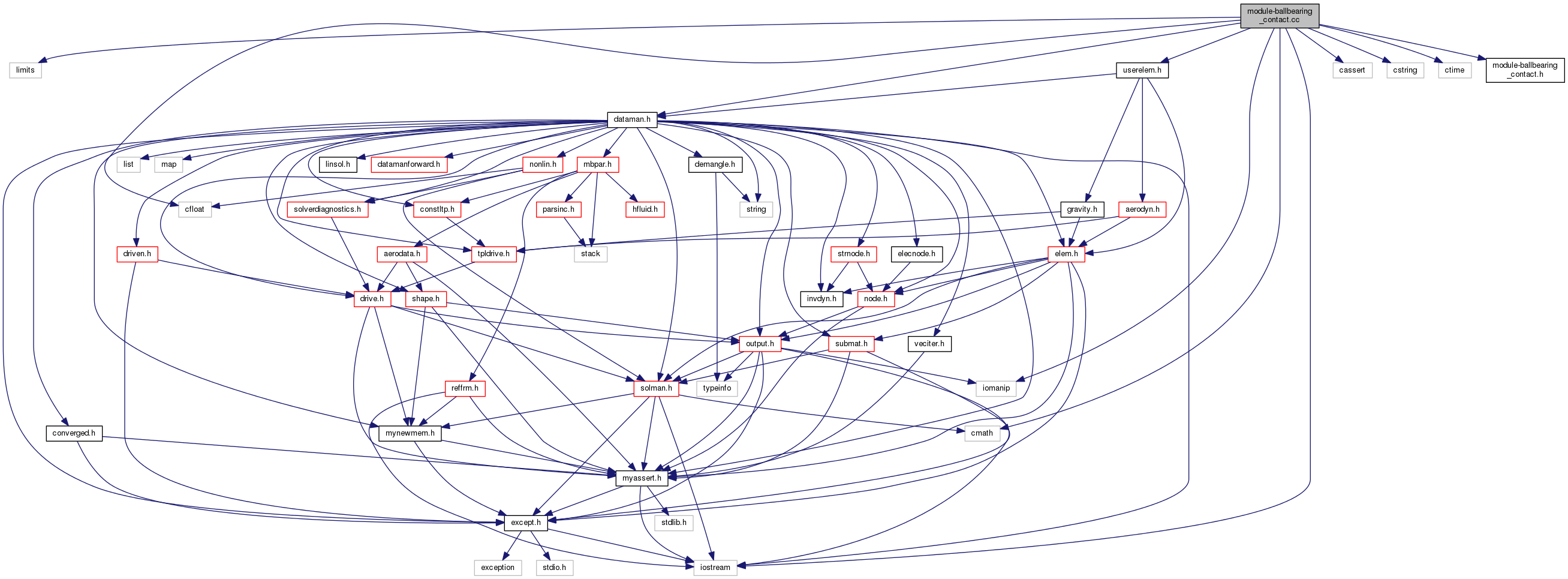|
MBDyn-1.7.3
|
|
MBDyn-1.7.3
|
#include <limits>#include <iostream>#include <iomanip>#include <cfloat>#include <cassert>#include <cmath>#include <cstring>#include <ctime>#include <dataman.h>#include <userelem.h>#include "module-ballbearing_contact.h"
Go to the source code of this file.
Functions | |
| bool | ballbearing_contact_set (void) |
| int | module_init (const char *module_name, void *pdm, void *php) |
| This function registers our user defined element for the math parser. More... | |
| bool ballbearing_contact_set | ( | void | ) |
Definition at line 924 of file module-ballbearing_contact.cc.
References SetUDE().
Referenced by module_init().

| int module_init | ( | const char * | module_name, |
| void * | pdm, | ||
| void * | php | ||
| ) |
This function registers our user defined element for the math parser.
It is called when the "module load" statement appears in the input file.
Definition at line 946 of file module-ballbearing_contact.cc.
References ballbearing_contact_set().
